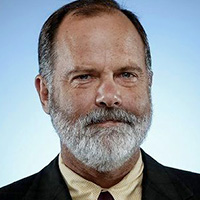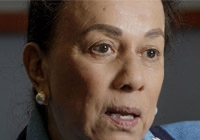WHICH ARE GREATER, the challenges facing Los Angeles or the opportunities to meet them? The research and civic leaders featured in this issue of Blueprint are evidence of the magnitude of both.
The challenges are considerable: Immigrants are arriving daily from around the world, some ready for work, others destitute and desperate. Income is stratified, with astonishing pockets of wealth virtually adjacent to dismaying swaths of poverty. Housing is in short supply, stretching even middle-class residents, and pushing some of the very poor into homelessness. Squalid encampments mock the region’s claims to affluence. And traffic? Well, try hurrying across town on a Friday evening.
But opportunities are abundant as well: The same immigrants who need places to live and schools for their children bring energy and excitement to the region, in everything from its food to its economy. Housing policy, once an afterthought, has moved squarely to the center of the political agenda. Planners and researchers are experimenting with design and transportation innovations that could revolutionize the way Angelenos live, work and move about.
It is perhaps the range of innovation that is most striking. As the articles in this issue reveal, academics and planners are studying ways to redirect traffic and parking. They are developing new ways of thinking about the design and density of housing. Legislators and voters, in part driven by the tragedy of homelessness, are exploring new ideas for promoting more affordable housing. Students and teachers are immersing themselves in Los Angeles communities and in controversies at the border to study and assist new arrivals, as well as help this city’s working people. If L.A.’s future is bright, it is because so many people are striving toward it.
It’s also noteworthy that these ideas are being explored against different histories. As Jon Regardie explains in his article about congestion pricing, that is not an idea new with Los Angeles, but it has specific potential, as well as resistance, here, where residents are accustomed to free public roads that are not a commodity subject to tolls or otherwise managed. Similarly, L.A.’s housing crunch is the object of close analysis by UCLA professor Stephanie Pincetl, who has clear eyes about the complexity of its politics. Meanwhile, immigration and labor are vital to L.A. and its future, but the best ways to address them combine research and activism, a sense that Los Angeles needs to be studied and lived in at the same time.
On balance, the tension between challenge and potential gives thoughtful leaders reason for optimism. Frank Gehry designed L.A.’s most beautiful building, the arresting Disney Hall, and he is now exploring new and inviting places to work and learn and celebrate our culture along the Los Angeles River. Antonia Hernandez, who came here in the third grade from her native Mexico and went on to graduate from UCLA and UCLA Law School, is addressing the region’s needs as executive director of the California Community Foundation.
“We’ve come to accept the messiness of life here … the liberties, the opportunities,” she said in a conversation with Blueprint. “And I think we’re melding the good of what this country has to offer with the communal sense. That’s where liberal democracy will succeed.”
Hernandez is onto something. Los Angeles must recognize both its messiness and its potential. Both are true and true at the same time. She, along with others in this issue, remind us that, although there is plenty to do, Los Angeles has abundant resources to work with.























